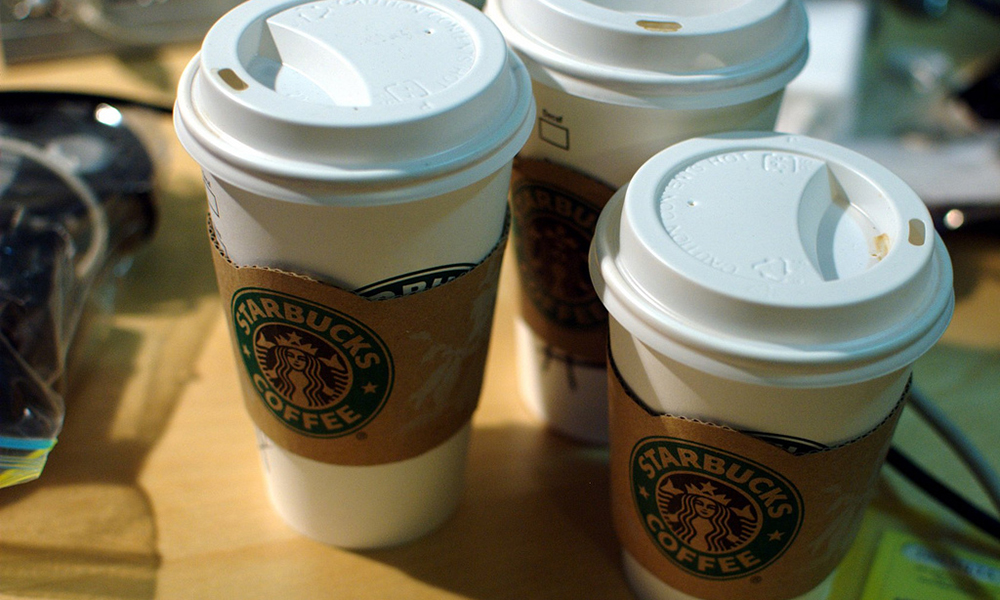
Who Gets the Tip? Association Chimes In on Starbucks Battle
As New York's highest court decides a case pitting Starbucks baristas against supervisors in a fight over the tip jar, one association points out the potential repercussions for the state's hospitality industry.
When you leave a tip in the Starbucks tip jar, where does it really go? In New York state, that’s going to be up to the Court of Appeals.
The coffee industry giant has found itself at the center of a legal battle involving baristas, supervisors, and assistant managers, and the question of who deserves to collect tips from the jar. The decision of the lawsuit currently being deliberated in New York state’s highest court could affect the New York Restaurant Association’s members as well as hospitality workers throughout the state.
More details:
If Starbucks were forced to change their company policy and adhere to New York State’s definition of an agent, then supervisors would be ruled exempt from collecting from the tip jar.
The players: The focal point of this lawsuit is disagreement among hourly-wage baristas, hourly-wage shift supervisors, and salaried assistant managers. Currently, the division of the tips is shared weekly among the baristas based on hours worked and the supervisors, who are paid more than the baristas. The baristas want exclusive rights to the tip jar, but the supervisors don’t think a change to the policy is necessary. Meanwhile, the assistant managers want to gain access to the jar to get a share of the tips. Starbucks, through its attorney, currently sides with shift supervisors, according to an Associated Press report. While the division of responsibilities and gratuities is up to the employer, the open question is whether that division of tips complies with New York labor law.
The question: At issue, according to the New York Business Journal, is what constitutes an “agent” of the company in the context of the state’s labor law. Agents are not allowed to receive a cut of gratuities, so if an “agent” is defined by the court as a supervisor or employee in a leadership role, Starbucks would have to change current company policy and exclude supervisors from collecting a share of the tips.
Where the association stands: While the New York Restaurant Association isn’t a direct party in this case, law firm Jackson Lewis submitted an amicus brief on behalf of the association that weighs in on the potential magnitude of the case. The association asserts that a decision favoring the baristas could “result in unforeseen civil liability for thousands of restaurants in New York,” according to a Law360 report.
Tipping the balance: The bigger picture is how the New York high court’s decision will affect not only Starbucks, but the entire hospitality industry—and in some cases, whether or not a tip is earned/deserved. A decision in favor of the baristas would provoke companies to ensure that job titles and the functions being performed by their employees adhere to New York state labor policies. As a result, the days of employees wearing multiple hats might no longer be the norm. According to the Wall Street Journal, this appellate decision could affect 250,000 hospitality industry workers in New York City alone.
This isn’t the first time Starbucks has been at the center of a legal case involving tips and job title versus job function. However, the outcome of this case could bring about serious changes in New York hospitality industry perceptions of power, job titles, and gratuities.
(photo by Ruben Schade/Flickr)






Comments